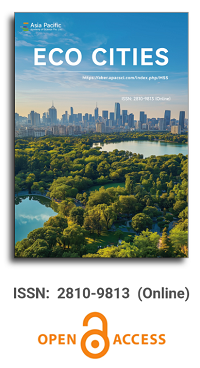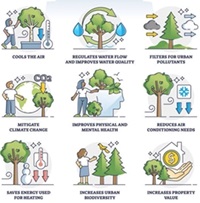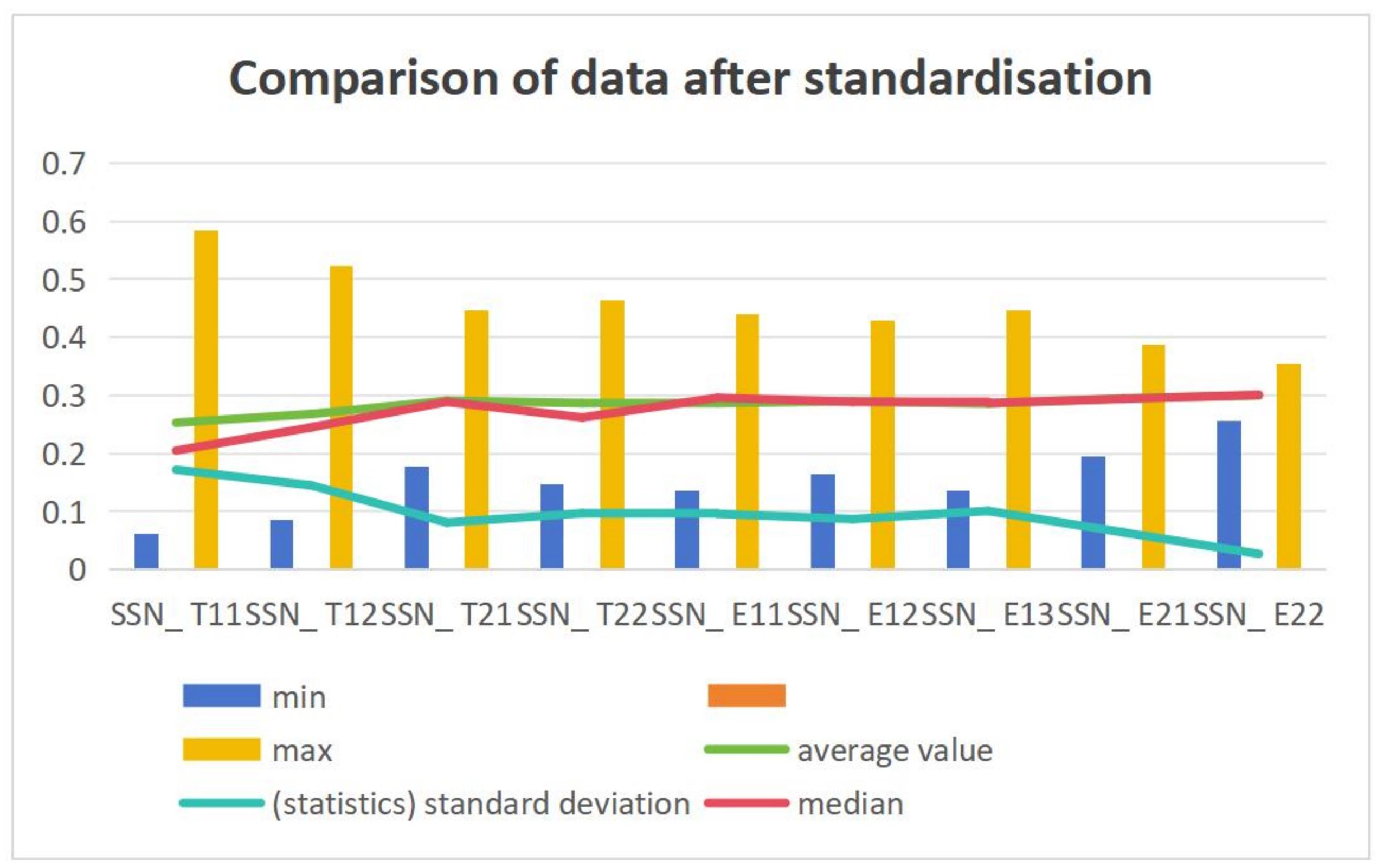


Framework for assessing sustainability of urban transport projects—Case of India
Vol 4, Issue 2, 2023
Download PDF
Abstract
The majority of the population in million-plus cities of India, especially the lower- and middle-income groups, are largely dependent on public transport (PT), intermediate public transport (IPT), and non-motorized transport (NMT) for their mobility. There is a need to assess such urban transport projects with regard to their contribution to various developmental goals, such as the Nationally Determined Contributions (NDCs) in the context of the Paris Agreement of 2015 and the Agenda 2030 of the Sustainable Development Goals (SDGs), independently as well as in their interactions with each other. Ministry of Housing and Urban Affairs, Government of India published a checklist for project appraisal of urban transport projects in 2015. This viewpoint proposes to expand the existing checklist for assessing public transport projects, i.e., BRTS and city bus services, IPT sector, i.e., auto-rickshaw, E-rickshaw, cycle-rickshaw, and shared mobility like Uber and Ola, and NMT infrastructure, i.e., walkways and cycle infrastructure to include parameters related to climate change mitigation, relevant SDGs targets, and participatory governance.
Keywords
References
- Ministry of Urban Development (MoUD) and Institute of Urban Transport (IUT). National urban transport policy. Available online: https://www.changing-transport.org/wp-content/uploads/E_K_NUMP_India_2014_EN.pdf (accessed on 1 June 2023).
- Ministry of Urban Development (MoUD) & Institute of Urban Transport (IUT). Appraisal checklist for urban transport projects: Toolkit. Available online: https://smartnet.niua.org/sites/default/files/resources/Appraisal%20Checklist%20for%20Urban%20Transport%20Projects.pdf (accessed on 1 June 2023).
- Ministry of Housing & Urban Affairs Government of India (MoHUA). Appraisal guidelines for metro rail project proposals. Available online: https://mohua.gov.in/upload/uploadfiles/files/Appraisal%20Guidelines%20for%20Metro%20Rail.pdf (accessed on 1 June 2023).
- Government of India (GoI). India’s updated first nationally determined contribution under Paris agreement. Available online: https://unfccc.int/sites/default/files/NDC/202208/India%20Updated%20First%20Nationally%20Determined%20Contrib.pdf (accessed on 1 June 2023).
- Verma M. Growing car ownership and dependence in India and its policy implications. Case Studies on Transport Policy 2015; 3(3): 304–310. doi: 10.1016/j.cstp.2014.04.004
- Ahmad S, Puppim de Oliveira JA. Determinants of urban mobility in India: Lessons for promoting sustainable and inclusive urban transportation in developing countries. Transport Policy 2016; 50: 106–114. doi: 10.1016/j.tranpol.2016.04.014
- Varghese V, Adhvaryu B. Measuring overcrowding in Ahmedabad buses: Costs and policy implications. Transportation Research Procedia 2016; 17: 145–154. doi: 10.1016/j.trpro.2016.11.070
- Mahadevia D, Advani D. Gender differentials in travel pattern – The case of a mid-sized city, Rajkot, India. Transportation Research Part D: Transport and Environment 2016; 44: 292–302. doi: 10.1016/j.trd.2016.01.002
- Goel R, Oyebode O, Foley L, et al. Gender differences in active travel in major cities across the world. Transportation 2022; 50(2): 733–749. doi:10.1007/s11116-021-10259-4
- Ek K, Wårell L, Andersson L. Motives for walking and cycling when commuting – differences in local contexts and attitudes. European Transport Research Review 2021; 13(1). doi: 10.1186/s12544-021-00502-5
- Mahadevia D. Promoting Low Carbon Transport in India: Gender Sensitive Transport Planning for Cities in India. UNEP; 2015.
- Wilbur Smith Associates and Ministry of Urban Development (MoUD). Study on traffic and transportation—Policies and strategies in urban areas in India. Available online: https://www.mohua.gov.in/upload/uploadfiles/files/final_Report.pdf (accessed on 1 June 2023).
- Tiwari G, Jain D. Accessibility and safety indicators for all road users: Case study Delhi BRT. Journal of Transport Geography 2012; 22: 87–95. doi: 10.1016/j.jtrangeo.2011.11.020
- Mohan D. Planning for public transport: Integrating safety, environment and economic issues. Available online: https://groups.seas.harvard.edu/TransportAsia/workshop_papers/Mohan.pdf (accessed on 1 June 2023).
- Mohan D. Mythologies, metro rail systems, and future urban transport. Economic and Political Weekly 2008; 43(S4).
- Sharma KK, Misra SK, Singla AK. Role of public private partnership in bus terminals: A case study of Punjab. Think India 2019; 22(2): 116–128. doi: 10.26643/think-india.v22i2.8680
- Mahadevia D, Joshi R, Datey A. Ahmedabad’s BRT system: A sustainable urban transport panacea? Economic and Political Weekly 2013; 48(48): 56–64.
- Sarath KT, Munshi T. Effect of mass transit corridor on NMT users-case of Ahmedabad BRTS. Available online: https://www.academia.edu/19569499/Effect_of_Mass_Transit_Corridor_on_NMT_Users-_Case_of_Ahmedabad_BRTS (accessed on 1 June 2023).
- Government of India, Ministry of Housing and Urban Affairs. Atal mission for rejuvenation and urban transformation -AMRUT. Available online: http://amrut.gov.in/content/ (accessed on 1 June 2023).
- Government of India. National Electric Mobility Mission Plan (NEMMP). Available online: https://evyatra.beeindia.gov.in/central-govt-initiative-details/dhi-2/#:~:text=Government%20of%20India%20launched%20the,electric%20vehicles%20in%20the%20country. (accessed on 1 June 2023).
- Mahadevia D, Mukhopadhyay C. How do NDC and UN’s sustainable development goals introduce new meaning of sustainability within mega transport project appraisals? Journal of Mega Infrastructure & Sustainable Development 2019; 1(3): 237–254. doi: 10.1080/24724718.2021.1930946
- Mukhopadhyay C. Public transport and bus rapid transit as a tool of decarbonization in Malaysia. Available online: https://malaysiacities.mit.edu/sites/default/files/documents/chandrima.pdf (accessed on 1 June 2023).
- Ward EJ, Dimitriou HT, Dean M. Theory and background of multi-criteria analysis: Toward a policy-led approach to mega transport infrastructure project appraisal. Research in Transportation Economics 2016; 58: 21–45. doi: 10.1016/j.retrec.2016.08.003
- Mukhopadhyay C. A nested framework for transparency in Public Private Partnerships: Case studies in highway development projects in India. Progress in Planning 2016; 107: 1–36. doi: 10.1016/j.progress.2015.02.001
- Ward EJ, Skayannis P. Mega transport projects and sustainable development: Lessons from a multi-case study evaluation of international practice. Journal of Mega Infrastructure & Sustainable Development 2019; 1(1): 27–53.
- Harris A, Soban D, Smyth BM, et al. Assessing life cycle impacts and the risk and uncertainty of alternative bus technologies. Renewable and Sustainable Energy Reviews 2018; 97: 569–579. doi: 10.1016/j.rser.2018.08.045
- Bi Z, Song L, De Kleine R, et al. Plug-in vs. wireless charging: Life cycle energy and greenhouse gas emissions for an electric bus system. Applied Energy 2015; 146: 11–19. doi: 10.1016/j.apenergy.2015.02.031
- Vidhi R, Shrivastava P. A review of electric vehicle lifecycle emissions and policy recommendations to increase EV penetration in India. Energies 2018; 11(3): 483. doi:10.3390/en11030483
Supporting Agencies
Copyright (c) 2023 Darshini Mahadevia, Saumya Lathia, Chandrima Mukhopadhyay
License URL: https://creativecommons.org/licenses/by/4.0/

This site is licensed under a Creative Commons Attribution 4.0 International License (CC BY 4.0).

Chinese Academy of Sciences, China
Indexing & Archiving
Asia Pacific Academy of Science Pte. Ltd. (APACSCI) specializes in international journal publishing. APACSCI adopts the open access publishing model and provides an important communication bridge for academic groups whose interest fields include engineering, technology, medicine, computer, mathematics, agriculture and forestry, and environment.



.jpg)

.jpg)



